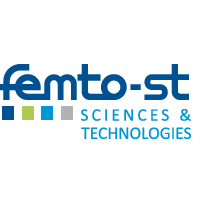Responsive Biomedical Systems Lab, ETHZ and Co-funder of the Magnebotix Compagny, Switzerland
Tentative title:
Individual and swarms of microrobots for tissue probing and enhanced drug transport
Abstract:
The tumor is host to a complex, dynamic microenvironment that arises from interactions of malignant and non-transformed cells. Understanding the underlying factors driving initiation, growth, and expansion is key to designing diagnostic and therapeutic tools, which then need to be delivered effectively. Using microrobotic tools, we aim to shed light on mechanical cues that drive tumor proliferation and develop mechanisms to adequately shuttle nanodrugs into tumor tissues for cancer therapy. For these studies, tumor-mimicking microfluidic models are employed to probe cellular responses and extract tissue mechanics via the wireless control of magnetic microrods that are actuated by a 3D magnetic manipulation platform. Our model further enables us to investigate strategies to enhance drug accumulation and penetration in the dense and often stiffened tissue matrix of the tumor microenvironment. Here, we employ two distinct micropropellers powered by rotating magnetic fields to increase diffusion-limited transport of nanosized drug carriers by enhancing local fluid convection. In the first approach, we use a single synthetic magnetic microrobot called an artificial bacterial flagellum (ABF), and in the second approach, we control swarms of magnetotactic bacteria (MTB) to create a directable “living ferrofluid” by exploiting ferrohydrodynamics. With both strategies, we demonstrated the ability to locally and wirelessly drive convective transport in tissue models.
Biography:
Simone Schuerle is Assistant Professor (Tenure Track) for Responsive Biomedical Systems at the Swiss Federal Institute of Technology in Zurich (ETHZ), Switzerland. Her group develops diagnostic and therapeutic systems at the nano-and microscale with the aim of tackling a range of challenging problems in health care. Prior to taking this position, she was postdoctoral fellow at the Koch Institute for Integrative Cancer Research at MIT, researching nanosensors for in vivo tumor profiling as well methods to enhance drug transport into tumor tissues (2014-2017). She earned her PhD from ETHZ in 2014 where she focused on magnetic manipulation techniques for biomedical applications at the Institute of Robotics and Intelligent Systems. She was awarded with the ETH medal for her doctoral thesis and with fellowships from the Heinrich Hertz foundation, Swiss National Science foundation, German Academic Exchange Network, and the Society in Science for her research. She was honored with the distinction of “Young Scientist” by the World Economic Forum (WEF) for her or her scientific contributions to society and she served to the WEF Global Future Council on Human Enhancement. She is also co-founder of MagnebotiX, an ETHZ spin-off.

